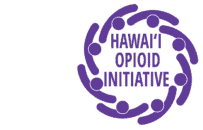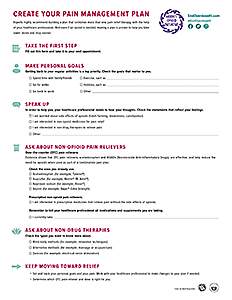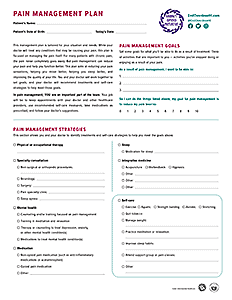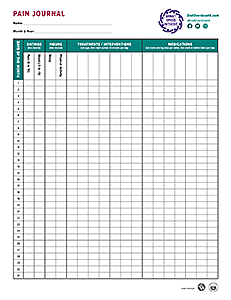Not all types of pain need management with opioids or narcotics.
The list below includes many options that might be helpful in managing pain. Sometimes it takes a few tries to find the right combination for you. Make sure to work with your doctor as you explore these options.
-
Non-narcotic medications (NSAIDS, Acetaminophen, Anticonvulsants, Musculoskeletal Agents, Antianxiety Meds)
-
Restorative Therapies (Therapeutic Exercise, TENS, Massage Therapy, Traction, Cold & Heat, Therapeutic Ultrasound, Bracing)
-
Interventional Procedures (Epidural Steroid Injections, Facet Joint Nerve Blocks, Cryoneuroblation, Radiofrequency Ablation, Peripheral Nerve Injections, Sympathetic Nerve Blocks, Neuromodulation, Intrathecal Medication Pumps, Vertebral Augmentation, Trigger Points, Joint Injections, Interspinous Process Spacer Devices and many more)
-
Behavioral Health Approaches (Behavioral Therapy, Cognitive Behavioral Therapy, Acceptance & Commitment Therapy, Mindfulness-Based Stress Reduction, Emotional Awareness & Expression Therapy, Self-regulatory or Psychophysiological Approaches)
-
Complementary & Integrative Health (Acupuncture, Massage & Manipulative Therapies, MBSR, Yoga, Tai chi, Spirituality)
Sometimes it is necessary for a patient to include opioids as part of their pain management plan. Some people can use opioids safely under a health care provider’s direction.



